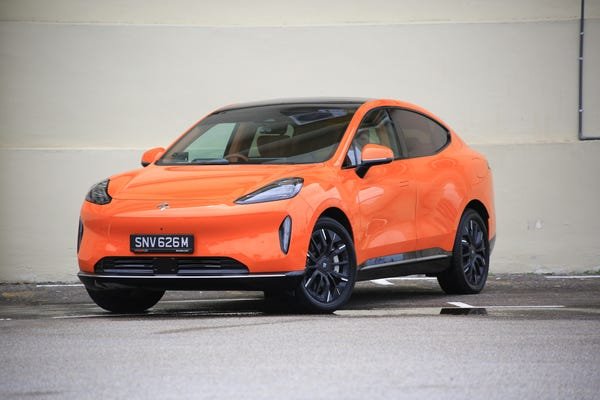
The once-booming U.S. market for electric vehicles is slowing, but Uber CEO Dara Khosrowshahi isn’t fazed. Speaking today (Sept. 23) at the Concordia Summit in New York, he said Uber’s push into self-driving cars could act as a “catalyst” for EV adoption.
Beyond safety and affordability, autonomous vehicles (AVs) offer another key advantage: sustainability. “The other really positive factor with AVs is that AVs are, by nature, also electric,” said Khosrowshahi, who pointed to Uber’s growing autonomous footprint in the U.S. as a way to help revive the country’s flailing EV transition.
Uber, led by Khosrowshahi since 2017, currently offers AV rides in Austin, Atlanta and Phoenix through a partnership with Alphabet’s Waymo. Abroad, the company has teamed up with China-based WeRide to provide autonomous rides overseen by human safety drivers in Middle Eastern cities like Dubai and Abu Dhabi.
That footprint is set to expand. Later this year, Uber plans to launch in Germany and unveil new projects across Asia, Khosrowshahi said, noting the company now works with about 20 AV partners worldwide. “Autonomous is happening now, and it’s expanding all over the world.”
A supportive regulatory framework is crucial when selecting AV markets, according to Khosrowshahi, who emphasized that robot drivers are five times safer than humans. “They don’t get distracted, they’re not texting, and most of these AV models will have driven over 1,000 times the miles that you and I will ever drive,” he said.
Launching in regions where Uber has a strong presence is another advantage. Adding AV services to an existing network makes operations more efficient and helps offset high costs—self-driving cars can run well over $100,000 each. “You want these vehicles as highly utilized as possible,” noted Khosrowshahi.
Over time, AVs are expected to lower fares, which could fuel demand. To avoid worsening congestion, Khosrowshahi envisions a future dominated by shared autonomous rides carrying multiple passengers, which he called a “newer development” in the field. That’s why Uber has been investing in services like UberX Share, which lets riders split trips and costs, he said.
While AVs have been in development for decades, advances in A.I. have pushed the technology into new territory. Earlier generations of self-driving cars were largely deterministic. With the advent of large language models, modern systems can now handle complex real-world driving by learning through observation in more human-like ways. After years of research, they are “finally ready for prime time,” Khosrowshahi said. “The rate of acceleration in terms of the development of the technology, the safety of the technology, is pretty extraordinary.”







